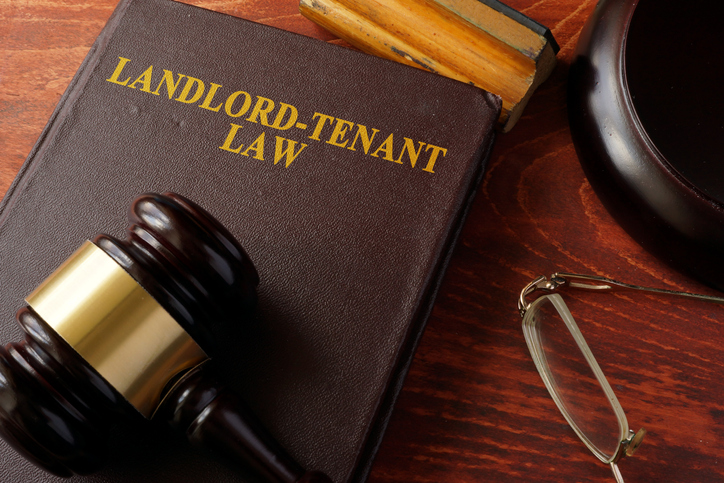
The Nevada Revised Statutes (NRS) provide tenants and landlords with protections relevant to owning, managing, and occupying a rental property. These renting laws ensure that both parties treat each other in a fair and respectful manner.The basic obligation of landlords is to offer their tenants safe and habitable housing at a fair price. Tenants are expected to cooperate with their landlords and keep their rented property in good condition throughout their stay.
Learn more about the responsibilities and obligations stipulated in Nevada’s landlord-tenant laws below:
Landlord disclosures
Landlords are responsible for informing tenants about any hidden or inconspicuous aspects of the rental property that can cause injury or interfere with the tenant’s safety and enjoyment of the residence.
Nevada law requires landlords to provide the following information through the lease or rental agreement:
- Purpose of non-refundable fees
- Conditions for the security deposit return
- Move-in checklist which includes existing damages to the rental property
- Tenants’ rights to be present during move-out inspection
- Shared utility arrangements
- Presence of environmental and/or health hazards like mold, radon, and lead-based paint
- Landlord or property manager’s identity
- Fire protection measures
- Outstanding housing code violations or building inspection/condemnation orders
Tenants can sue in small claims court for damages resulting from any nondisclosure of pertinent information. Depending on the severity of the situation, landlords may receive monetary penalties or non-monetary sanctions.
Security deposit limits and return policy
Nevada law establishes that a landlord can charge a tenant up to the equivalent of three months’ rent as a security deposit.
A tenant can use a surety bond (a legally binding contract among three parties) for a part of or the entirety of their security deposit as long as the landlord agrees.
According to NRS 118A.242, when a tenant moves out, the landlord must return the security deposit within 30 days. If any amount is deducted from the security deposit initially paid, the landlord is required to provide an itemized list of what the money was spent on. The list can be given in person or sent through the mail.
Rental agreements, late fees, and related rules
Any lease or rental agreement must be made in writing and should include the following details:
- Terms of the contract
- Rent amount
- Frequency of payment
- Payment conditions
- Occupancy rules regarding children or pets
- Services included with the residential property
- Charges for late or partial rent payment
- Landlord’s or property manager’s inspection rights
- List of occupants
- Responsibilities of the landlord and tenant
- End of lease or lease termination procedures
Rental agreements should be signed by the landlord and the tenant or their respective representatives. The landlord should provide a copy of the agreement during the signing and upon the tenant’s request.
Rent increases
NRS 118A.300 requires landlords to give tenants notice 45 days before raising rent. If you have a lease, the landlord must wait for the term of the lease to end before increasing the amount.
For periodic lease terms that last less than one month, the landlord must give a rent increase notice in 15 days.
According to NRS 118A.510(1), a landlord is not allowed to increase rent “in retaliation against a tenant.” Landlords cannot penalize tenants with a rent increase for reasonable complaints about safety or comfort or for exercising their legal right to withhold rent due to justifiable causes.
Starting on July 1st, 2021, the notice requirement has been mandated to 60 days. Please click here to see more details.
Landlord access to an occupied rental property
When entering or accessing the rental property for inspection or repair, landlords must give tenants a warning 24 hours beforehand, as stipulated in NRS 118A.330. Emergency situations are the only exception to this rule.
The landlord or property manager’s right of access should be included in the lease agreement to prevent any misunderstandings.
Eviction notices and procedures
Under NRS 118A.430, a landlord must provide the tenant with a written notice of any acts or omissions that constitute violations to the conditions of the rental agreement. If the tenant does not address the problem in seven days after receiving the notice, the landlord can file for eviction.
Reasons for eviction include:
- Violating the conditions of the lease
- Intentionally damaging the property
- Conducting unlawful business within the property
- Creating nuisance
- Causing injury to other tenants or occupants of the property
- Non-payment of rent.
For more assistance and advice relevant to investing in rental properties, get in touch with Leading Vegas Realty. LVR provides expert residential property management services in Las Vegas. Call our team of trustworthy LVR Associates at [ai_phone href=”+1.702.545.6050″]702.545.6050[/ai_phone] or email your inquiries to [mail_to email=”Emily@LeadingVegas.com”]Emily@LeadingVegas.com[/mail_to].



